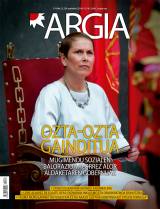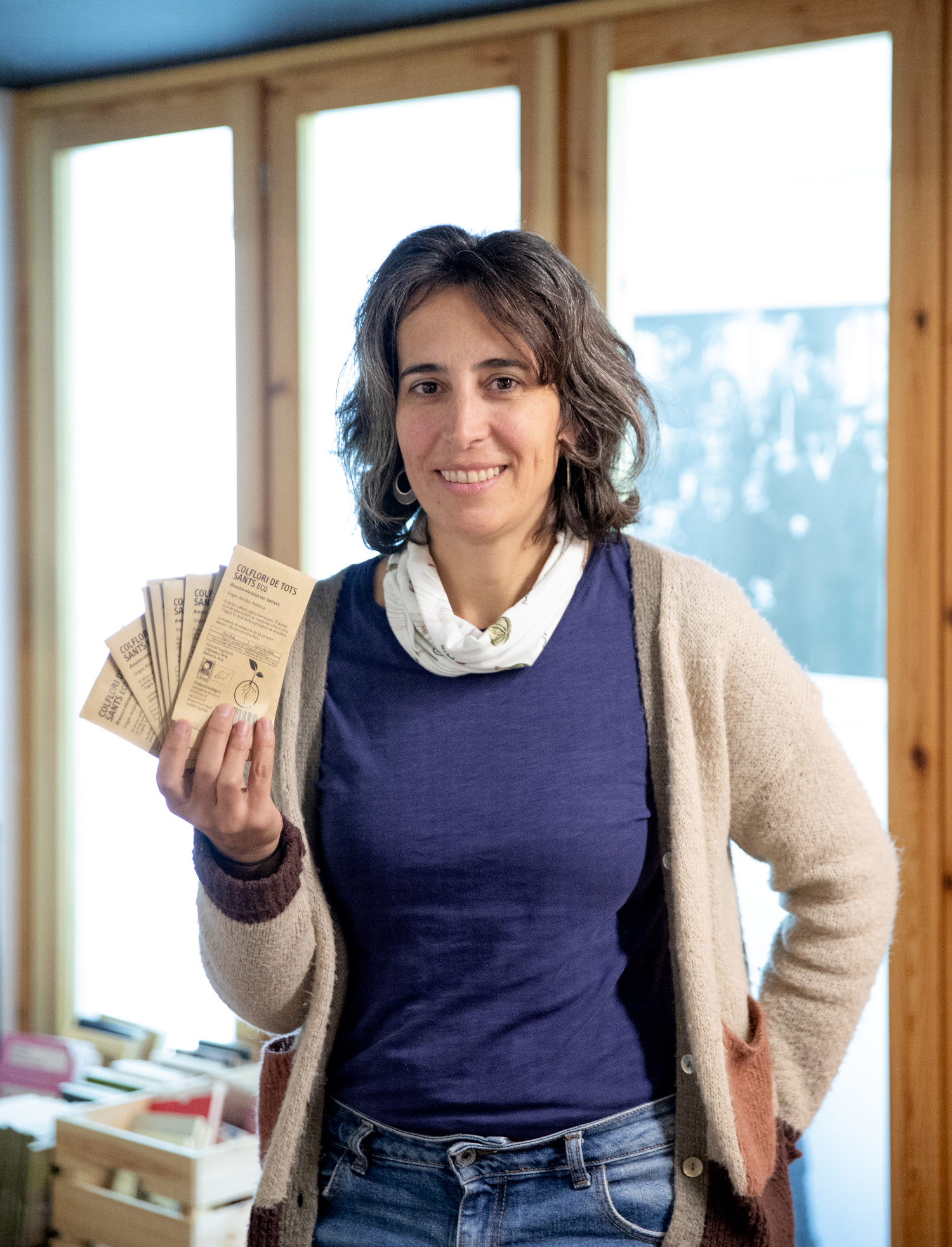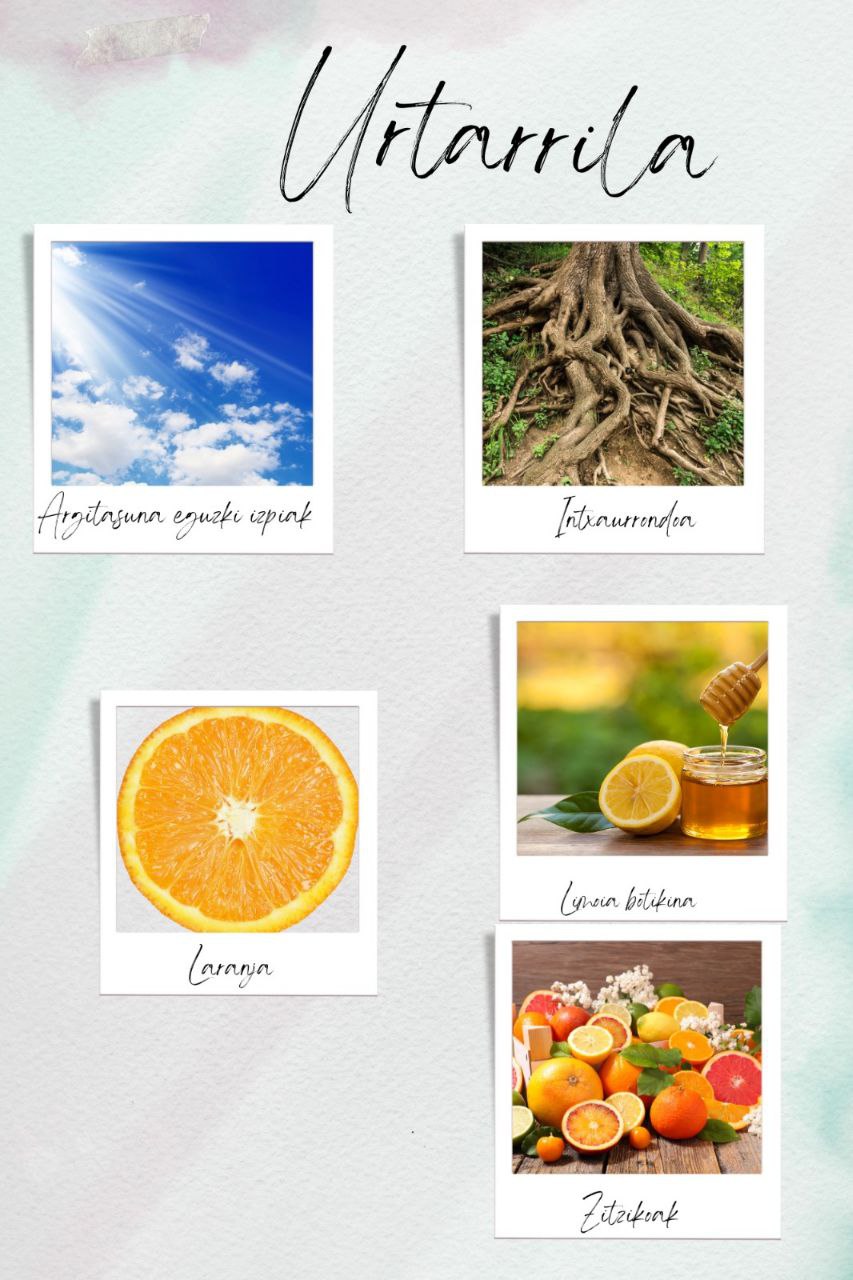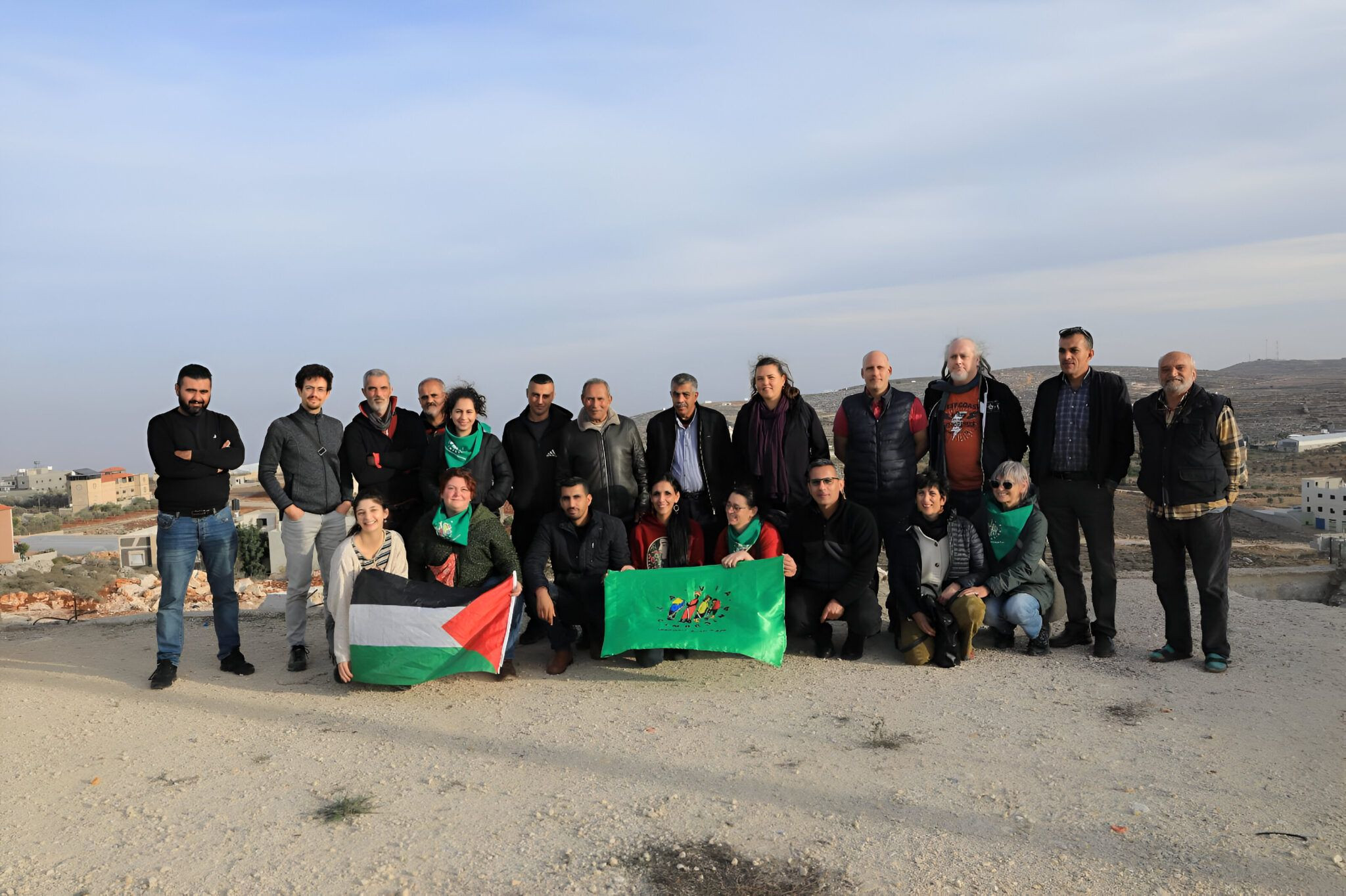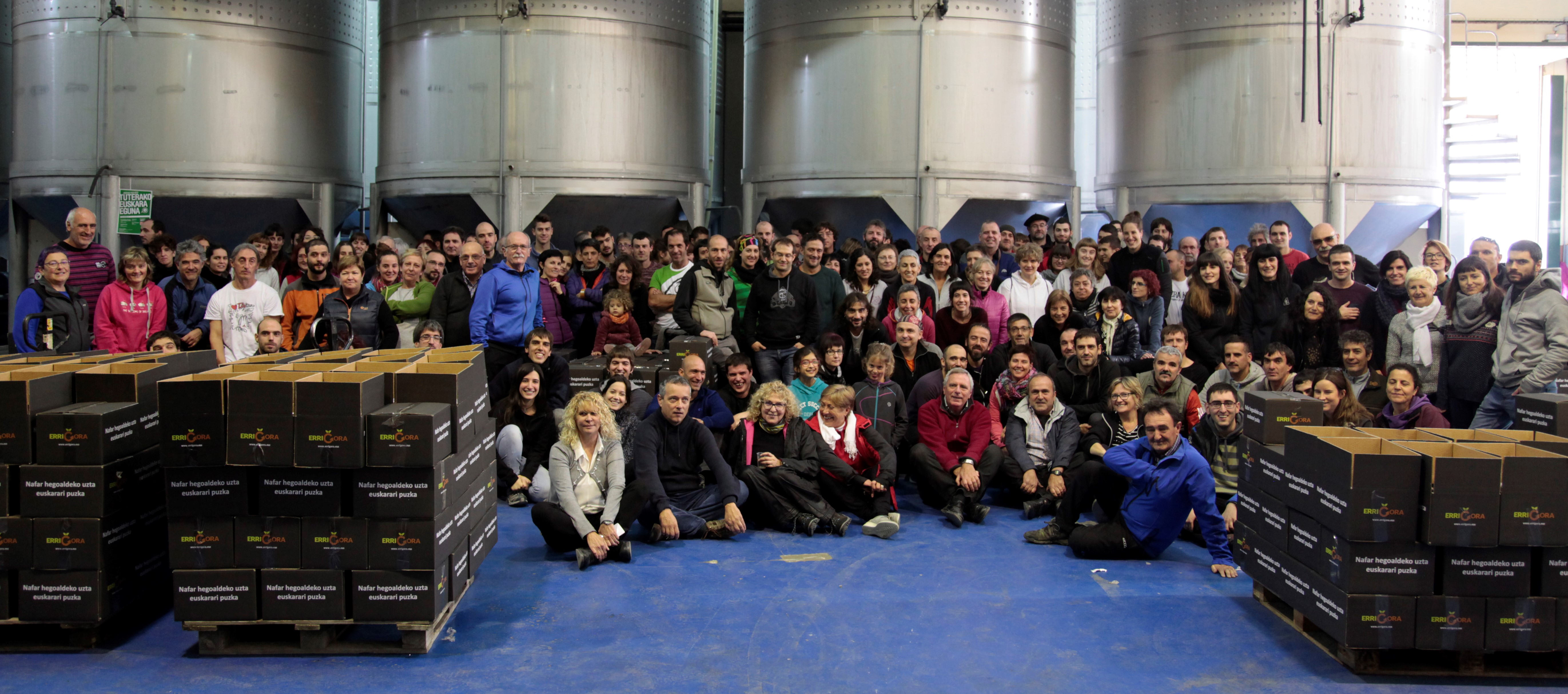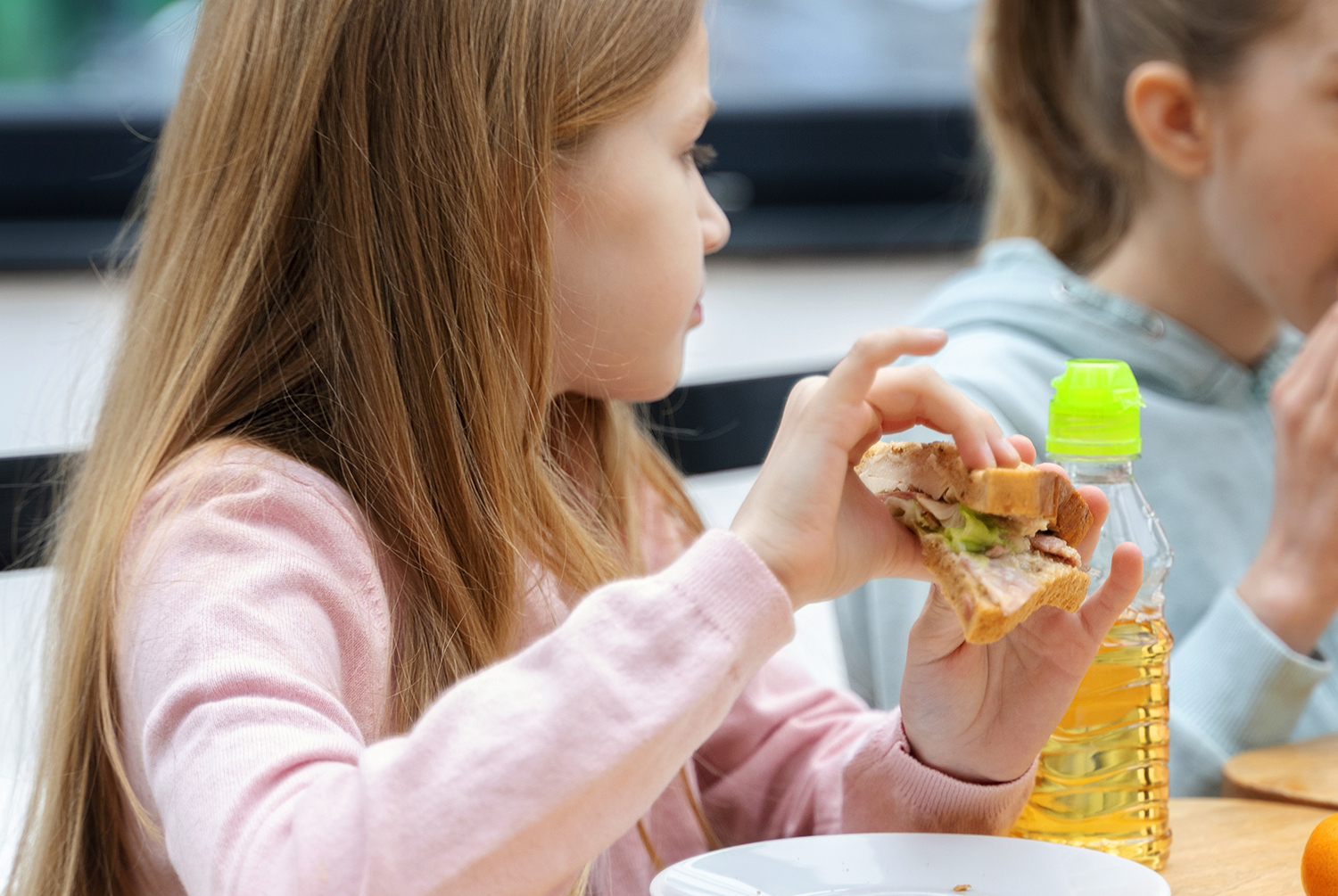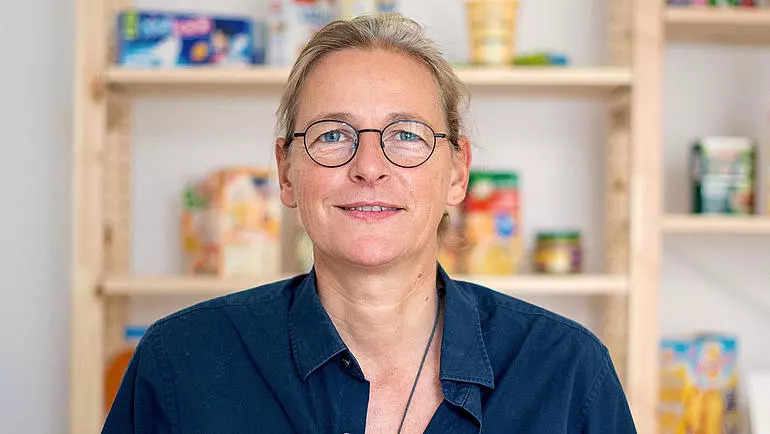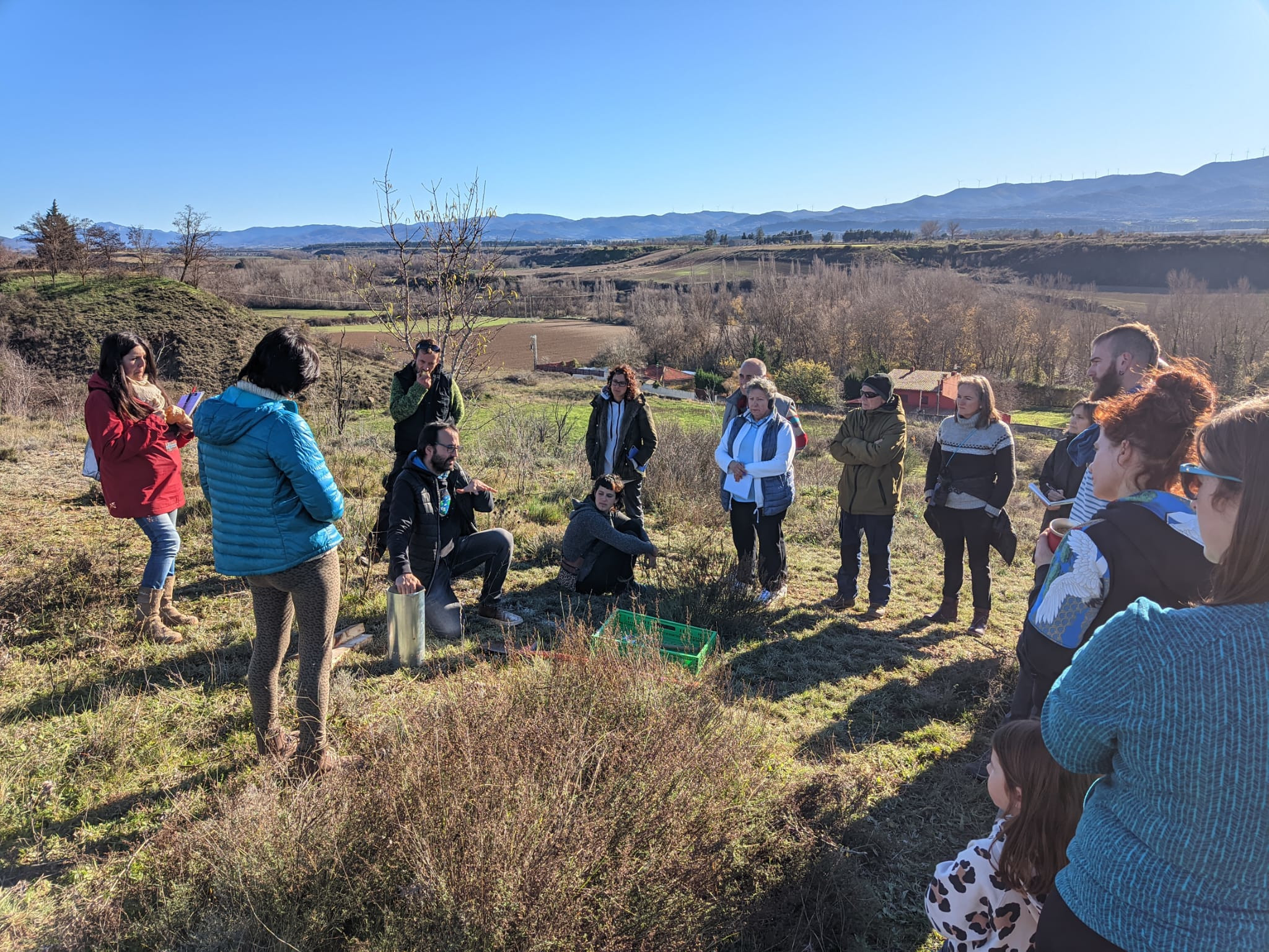Two refrigerator filling doors
- A member of a consumer group and a friend who buys food in stores tell us about their reality and their customs. Both are in favour of boosting and consuming local and ecological products, but can the refrigerator be filled with these foods in two ways? For a month they have written their purchases in a table and shared with ARGIA the conclusions obtained.

Leo Argote and Arrate Beobide, who is not his real name, tell us the secrets of their consumer habits. The first of them, 33 years old, is from Errenteria-Orereta and the second, 26 years old and natural from Hernani. They both live alone. They wake up at the same time. Both of us have confessed their viciousness about coffee. And the two are in favor of eating local organic products. But Argote fills the refrigerator through a consumption group, while Beobide buys the food in the tiendas.Las legumes, vegetables, meat
and fish are the ingredients of the weekly menu of the two. It can be said that they have the same customs and that both try to make conscious purchases. They try it, but do they get it? Among other things, we've put our hands on it before we do the interview: for a month they've written their food and their waste on a table, and after looking back and seeing what they've done, they've told ARGIA what they've deduced.
Both have been surprised by the organic residue, proudly telling us that they generate a small amount, lower than expected. “I don’t know if it’s for education, but I’ve noticed that I use what’s more the next day, I’ve done it unconsciously, I’ve been surprised,” Beobide tells us smiling. Argote also referred to the same idea: “I make compost, and so far I have not realized the amount generated, the bag very little, the echo very little.”
In
case of urgency on the purchase
The Hernaniarra, despite regularly buying
in small shops of the town and knowing what it wants to consume, due to working hours, sometimes has to buy in a hurry, rather late and what it can. This puts a boundary between what you want to do and what you can do. “In those days I don’t spend much time thinking about what I want to buy and where what I want to buy comes from, I just have to look away.” He recognizes that there are days when there is no
choice but to enter the supermarket. Desire and reality sometimes do not match in your case. Buy daily, which limits buying on several occasions. Argote, on the other hand, gets most of the food through the consumption group and, every time he takes the basket, fills the refrigerator for two weeks. That can be the main characteristic that distinguishes them.
He shares the basket with a friend. He has stressed that for him buying products through the consumer group is the most comfortable, but he knows that it is not a model for anyone. “I live alone and in my work every day like the menu here. The situation of a family of four brothers is different and it is true that you have to organize well the day to day, first what you eat, first what is damaged… You have to have many things in your head, but it is also a matter of custom”. Through the consumption group,
Argote obtains many products such as vegetables, pasta, cereals and legumes, eggs, bread, oil and honey, among others. In Orereta there is a machine that sells dairy products from some producers in Gipuzkoa and that is where they are bought. Meat is sometimes found in the consumer group and, if not, it is bought every two months from a farmer in Olaberria. Buy fish and fruit in local shops. In the supermarket you only buy other household products, and occasionally chocolate or olives.
“You can consume local products in a consumer group or buy them in local stores,” Beobide said. He always can get the food in the small shops of the village, but stresses that he still has to take some steps and that he has to improve: “Among other things, when you buy rice, macaroni or lentils, normally, instead of buying the weight, I buy what comes in the bags and that should avoid.” He believes that buying more could find a way to go less to stores and generate less plastic.
He was born in the farmhouse, maintains that education and that habit, since he left the farmhouse he has tried to maintain it and develop his consciousness: “I know that being in a consumer group has something else to say, because it is a direct relationship with the producer, but I can also find in the village, without intermediaries, the possibility of buying quality and ecological products and products.” The foods that fill the shelves in the aisles of the supermarket are often said to have a lot of plastic, and he also adds to that.
Recently, Argote read that we throw away 30% of what we bought in the trash, “imagine that we dedicate that 30% to buying a quality product or paying what it deserves to the producers.” Everything he eats comes directly from the producer's hand and it is clear that for him the most appropriate and comfortable path is through the consumption group. Once the group was formed, it did not expect to reach this level, so filling the refrigerator in this way was a utopia. It is also critical of its action: “With some products such as coffee, chocolate, tea, it’s very difficult for it to be fully consistent. Although I have achieved it to a large extent in food, I find it difficult to be aware in other areas, such as new technologies.”
Why local and ecological?
Orereta's
partner buys in supermarkets and on many occasions feels tasteless when eating at home. “I really like to cook, smell the leek or the carrot. And I notice the difference between those products that I picked up at home and those that I bought from my partner, it has nothing to do with it. It is no longer rationality, I would say it is instinctive.” According to Muguruza,
the member of the consumer group recalls that he had organic apples in his hands made from Chile. “I prefer to eat from here and from treatises,” he thought when he saw the label. Then he decided to take the step and, thinking about the need to be able to consume local products, worked intensively in the creation of the consumption group of Errenteria-Orereta.
Although most people do so for their health, the two protagonists do so thinking that it is essential to strengthen themselves as a people. Beobide says that bringing food from afar is not good either for our people or for the people who produce it. "In the Spanish state, the average number of food reaching the island is about 4,500 kilometres. I find it very dangerous as a society that something so basic comes from so far,” added Argote.
Will, conscience and choice
They both agree that they are becoming more and more aware of consumption habits in general and that they see a polarization in society. “Comfort and price are the main concerns of today,” says Argote. Most people spend little time in the kitchen, in their opinion, and don't look too much at what they buy. “It’s all the time we want, as we want, and it doesn’t matter where it comes from, how it comes from, how it’s produced… In the case of food and if not,” Beobide added. On the other hand, they believe that there are also those who care about what they eat, but that they are a minority.
Beobide believes he is becoming more conscious, but he realizes that, despite being aware, he sometimes falls into easy, unthoughtful shopping.
Both agree with the idea that, in one way or another, a local and ecological product must be protected. “We have to offer local producers the space they need and pay what they deserve. My friends tell me that I will not change the world, I tell you that I know, but that I want to live as I want, that I want to have opportunities to be consistent with the choices I have made,” said Argote.







